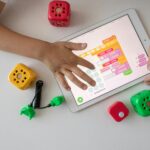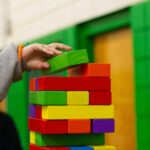What is FIPPA? And how does it effect us as teachers?
FIPPA stands for Freedom of Information and Privacy Protection Act. This is the laws that the provincial government has put out relating to privacy protection online. As a teacher this is important because we need to teach out students about privacy protection as well as ensure we ae not putting any student information online where it shouldn’t be.
Newsletters
One thing I wanted to focus on for my reflection is the use of weekly newsletters in classrooms and how we can keep parents informed about the happenings of our class while respecting students privacy. When I was in elementary school, my teachers would send home a paper newsletter each week that I would hand to my parents and they would sign to say they have read it. One of the problems with this is that it is not environmentally friendly, it is also relies on students to remember to give their guardians a newsletter which may be a struggle for some students. There has been a shift to using technology to give the same information to parents and guardians each week. This could be done using a word press blog like the one I’m writing on now. Websites like this can be public or password protected. They are able to be set up so that parents and guardians get a notification when new posts are added. That being said teachers have to be quite carful about the content of these newsletters. Here is a quick list of things that could be included in a newsletter,
-discussion topics
-information about spirit days or events
-pictures of student projects without student names attached (ensure students are okay with you posting their work on a website)
Here is a quick list of things that are not okay to include in an online newsletter,
-photos of students
-pictures of student work with their name attached
-any personal information about students
Documentation
One thing that looking into this topic made me think about was the importance of documentation of learning that philosophies such as Reggio Emilia put a heavy emphasis on. How can we ensure that we are allowing parents to be informed about their students education without risking anyone’s privacy? How can we ensure meaningful documentation of learning is happening with this in mind? These are questions I think all teachers should have in mind particularly when working in a philosophy that values documentation. One thing that we can do is ensure that all pictures we take in the classroom do not have anything included in them that could be used to identify a student. This includes faces, names and clothing. Another problematic thing in regards to documentation and privacy within the Reggio Emilia philosophy is the recording of student conversations. This is something that we need to be carful about. If we are using student conversations in our documentation documents that we are sharing with parents, we need to ensure that names are not attached and that none of the information shared identifies any student.





